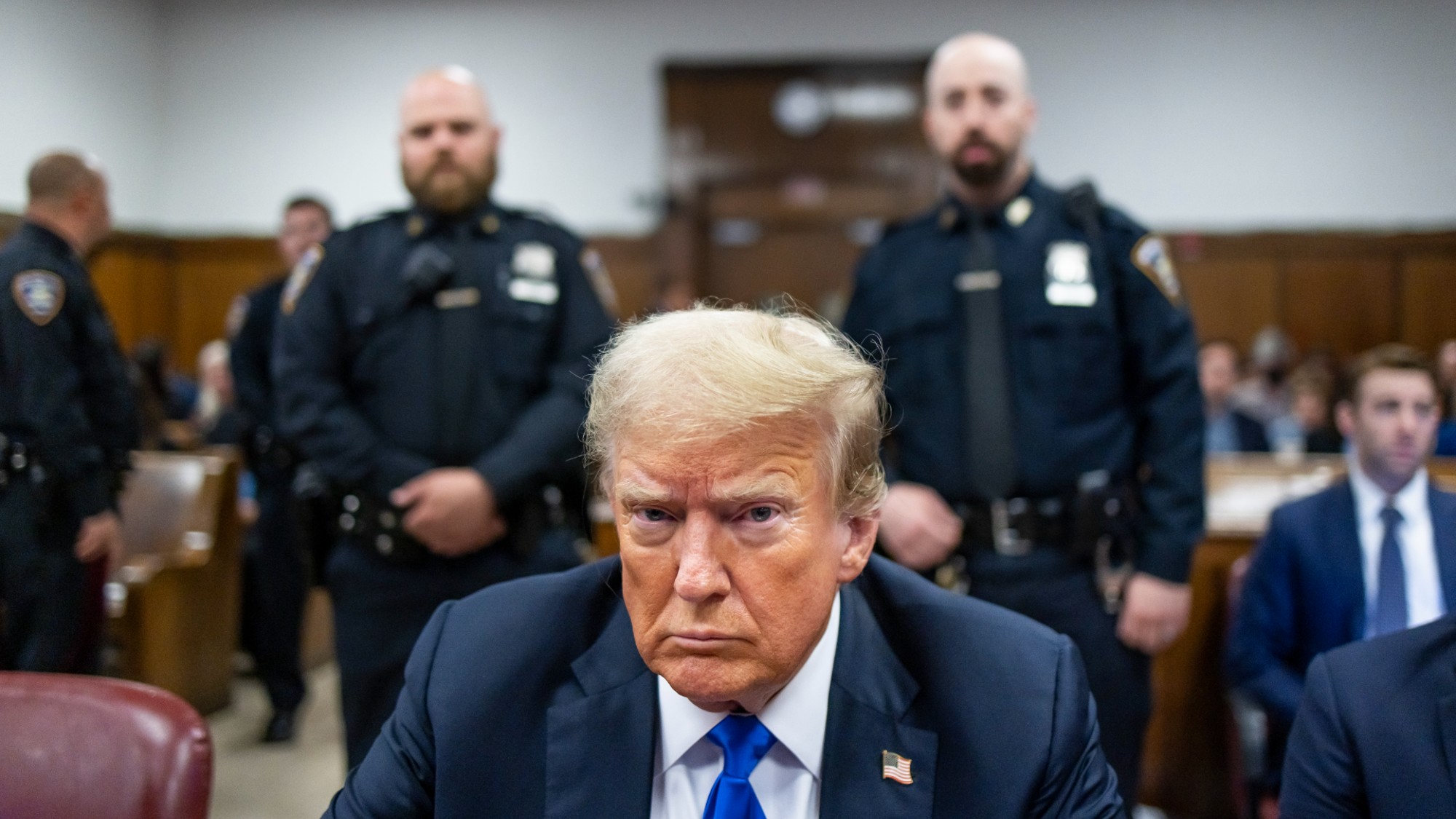What rights does Donald Trump lose as a felon?
Trump is the first former president to ever be convicted of a felony


A free daily email with the biggest news stories of the day – and the best features from TheWeek.com
You are now subscribed
Your newsletter sign-up was successful
On May 31, Donald Trump was found guilty on all 34 charges related to his efforts to hide a hush money payment to porn star Stormy Daniels ahead of the 2016 election. This makes Trump the first former U.S. president ever convicted of a felony, and his felonious status means that some things he takes for granted may now be off the table. What rights does Trump lose as a convicted felon, and how would this affect his life if he were to be reelected president?
Travel problems
If Trump is elected president again, he may have some problems with international relations as a result of his felony status. At least 37 countries, including major American allies, prohibit people who have been convicted of a felony from entering their borders, according to the World Population Review. Some of these countries, such as Australia, the U.K. and Argentina actively screen criminal records and will deny travel to felons immediately. Others, such as Brazil, don't actively screen criminal records but will typically kick someone out if their felony conviction is discovered by immigration authorities.
However, foreign leaders might "make exceptions for Trump, especially if he's elected president," said Axios. So it is true that other nations could stop him from entering, but "I don't think that those countries would dare not allow a sitting U.S. president to visit on a diplomatic basis," criminal defense attorney Keith B. Johnson said to Axios.
The Week
Escape your echo chamber. Get the facts behind the news, plus analysis from multiple perspectives.

Sign up for The Week's Free Newsletters
From our morning news briefing to a weekly Good News Newsletter, get the best of The Week delivered directly to your inbox.
From our morning news briefing to a weekly Good News Newsletter, get the best of The Week delivered directly to your inbox.
Owning a gun
Trump was licensed to carry three guns, but his new felony status is likely about to change that. Anyone convicted of a "crime punishable by more than one year in prison is barred from possessing firearms under federal law," said the Trace. Trump's crimes carry a maximum sentence of four years behind bars, meaning that the former president is "outlawed from owning guns even if he is ultimately sentenced to probation."
The NYPD is reportedly preparing to revoke Trump's firearm license, and CNN reported that his concealed carry license was already suspended after the charges against him were filed last year. Two of his guns were turned over to the NYPD and the third was moved to Florida, but "due to his felony conviction, he could be in violation of multiple state and federal laws if he still possesses that third gun in Florida," said CNN.
Voting
Many people began flooding social media after Trump's conviction saying that he was no longer able to vote. But contrary to popular belief, convicted felons "do not automatically lose their right to vote in the U.S.; different states have different policies on the issue," said Time.
So the question of his voting rights falls to Florida, the state in which Trump is registered to vote. Florida defers to the laws of the state where a felon was convicted — in this case, New York. The Empire State "is one of 23 states where people convicted of a felony can vote" as long as they aren't currently incarcerated, said the Guardian. As a result, Trump "will likely still be able to cast a vote for himself in November" unless he is behind bars at the time of the election.
A free daily email with the biggest news stories of the day – and the best features from TheWeek.com
Can he still be president?
All of these scenarios raise perhaps the most important question: Is Trump even allowed to be elected president as a convicted felon? The answer is a resounding yes. There is no law in the American legal system "that bars a felon from running for president," said Boston University's daily website, BU Today. Unless a law is passed to change this, Trump is free to run for the White House and potentially be reelected.
While there will be some restrictions on Trump, the fact is that "a lot of the negative consequences of getting a felony [conviction] really aren't going to apply to Trump because of his wealth and status," Angelo Petrigh, a clinical associate professor at Boston University's School of Law, said to BU Today. And while a felony conviction would normally impact a job application, that doesn't exactly apply to running for president, and Trump's "wealth isolates him" from most consequences.
Justin Klawans has worked as a staff writer at The Week since 2022. He began his career covering local news before joining Newsweek as a breaking news reporter, where he wrote about politics, national and global affairs, business, crime, sports, film, television and other news. Justin has also freelanced for outlets including Collider and United Press International.
